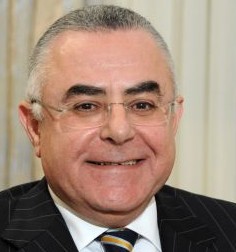Banks’ outcome of foreign exchange has exceeded $3bn over the past two weeks following the decision to liberalise the exchange rate, according to Tarek Fayed, sub-governor of the Central Bank of Egypt (CBE).
At the People and Banks conference on Monday, Fayed said that the decision to liberalise the exchange rate was essential so as to restore confidence in Egypt’s economy, increase growth rates, create new jobs, develop the private sector, encourage local and foreign investments, and increase exports.
Fayed stressed that the CBE studied this decision intensively over a period of several months before it was implemented in full coordination with the government.
He added that the implications of this decision became dramatically obvious during the few days that followed the decision, noting that investment and international pension funds started investing in the Egyptian government’s debt instruments.
According to Fayed, through this decision the CBE managed to end the speculation on the US dollar exchange rate, as well as ending currency trading and giving banks flexibility in terms of pricing foreign exchange.
The Egyptian banking system is strong and able to support the state during these circumstances as it always has, he said, noting that the volume of the financial centre of banks working in Egypt is estimated to be EGP 3tn.
Fayed revealed that, in light of the developments seen in the market, particularly the liberalisation of the exchange rate, the CBE will reconsider the definition of small- and medium-sized enterprises (SME) during the upcoming period.
The CBE developed specific definitions of SMEs in December 2015, and launched an initiative in January 2016 to support and finance these projects.
Fayed explained that, since launching this initiative until the end of June 2016, banks have achieved growth rates in the financing of these projects estimated at 15%. The number of SMEs financed during that period has also increased by 5,000 companies with a growth rate of 16%.




